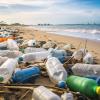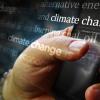
IIASA and the Natural Environment Research Council (NERC) have awarded three fellowships to support talented early career researchers in delivering challenging research and supporting collaboration between the two organizations.
Scientists awarded the three-year collaborative research fellowships will spend their time equally between IIASA in Austria and their UK research organizations.
As well as conducting research in environmental sciences, the fellows will undertake network-building activities to establish sustainable, collaborative, and interdisciplinary relationships between UK and IIASA researchers.
The UK joined IIASA in 2015, and jointly conducts research into global-scale challenges including climate change and other complex international issues that impact on a country’s economy, environment, and society.
The collaborative research fellowships will ensure the long-term future of UK expertise in this area and build on existing multinational and multidisciplinary work conducted jointly by the organizations’ scientists.
Sarah Webb, Associate Director for National Capability at NERC, says, “We’re delighted to award three fellowships to support closer collaboration between NERC and the International Institute for Applied Systems Analysis. Our work with IIASA is globally significant, and we look forward to closer long-term ties.”
Funding of £1 million was made available to support research fellowships through this call. The Fellowships will start between March 2020 to June 2020 and last for three years.
“While there is already significant collaboration between IIASA and UK researchers, these fellowships will ensure even greater research cooperation, not just between IIASA and the UK, but among researchers from all the institute’s member countries, thus facilitating higher quality research outputs overall,” concludes IIASA Capacity Development and Academic Training Dean, Fabian Wagner.
News

28 June 2024
Drowning in waste: pollution hotspots in aquatic environments

27 June 2024
What can social media tell us about public views on climate change?

21 June 2024
